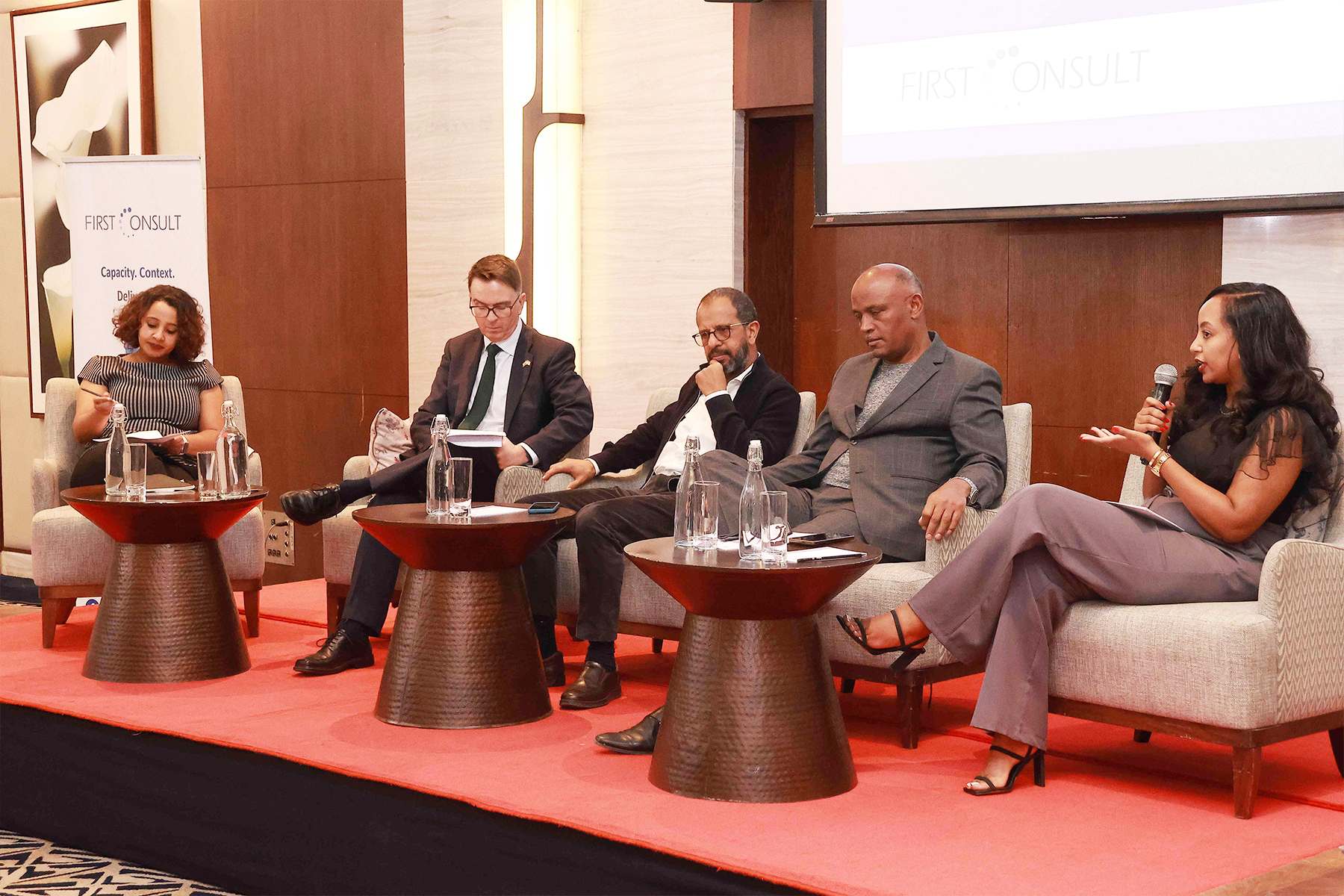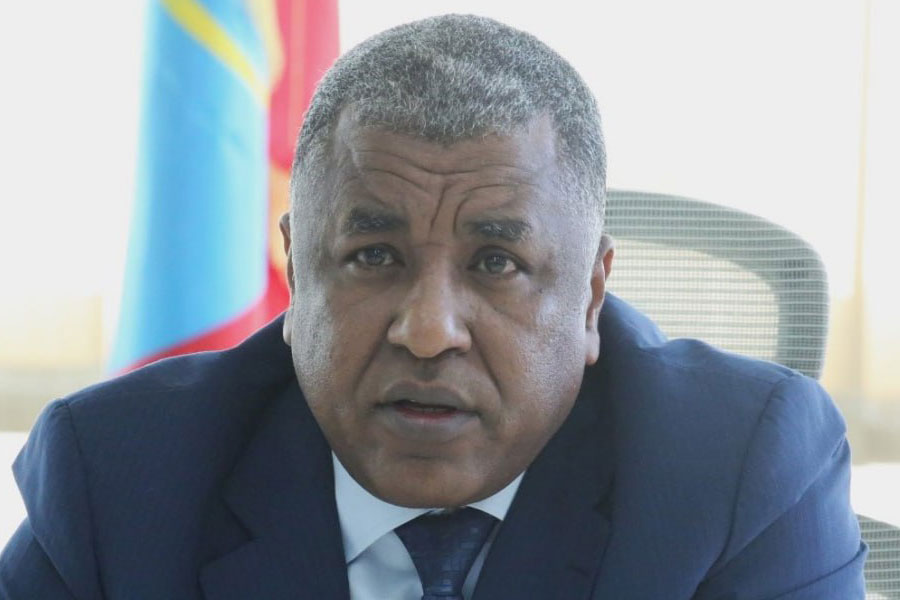
An industrialisation campaign that aspires to take lessons from failures of industry parks targets diversified exports and enhanced regional trade capacity. Dubbed Special Economic Zones (SEZ), a minimum five billion Birr requirement is set to develop the areas through strategic picking of the location.
Crafted by officials within the Ethiopian Investment Commission, a bill entailing broader development policy including investor protection and robust dispute resolution mechanisms is in the hands of Ethiopian lawmakers.
The official who was involved in the making of the draft from the Ethiopian Investment Commission expressed hopes that strategically building the economic zones will help attract significant domestic and foreign investors under expanded economic imperatives. He believes industrial parks failed to meet the country's needs particularly due to their locations and bureaucracy that did not include one-stop service areas.
About two decades ago, the first industrial park was built in Dukem town, Oromia Regional State. Besides the industrial park law in 2015, Eastern Industrial Park has not had significant changes in regulation, failing to gain the traction that was initially expected.
The bill seeks to increase foreign direct investment by adapting to technology and diversifying export sectors. It also aims to address unemployment by creating strong linkages with local producers in the economic zones including local and foreign financial institutions.
The National Bank of Ethiopia will tailor regulations for currency management and the operation of financial institutions. Meanwhile, the Ethiopian Investment Board will be responsible for overseeing the zones chaired by Prime Minister Abiy Ahmed (PhD). Members comprise Lelise Neme, head of the Ethiopian Investment Commission, Mamo Mehretu, governor of the central bank, Ahmed Shide, minister of Finance, Fitsum Asfaw, minister of Planning & Development and Girma Birru, senior economic advisor to the PM.
If the bill is ratified, one such area that meets the criteria to join the special economic zone is Dire Dewa Free Trade Zone (FTZ), located close to the borders and 445Km east of Addis Abeba. The expansive 150hct space is in the process of expanding to 288hct. It has seven companies producing from 15 sheds.
It has garnered over 300 domestic and international investors submitting proposals to operate in the area, according to Ahmed Rashid, deputy manager.
The five-year-old Zone generated seven million dollars from manufacturing last year. Its proximity to ports and suitability for multimodal transport and logistics has fueled its success, according to Rashid.
"We are eagerly awaiting the ratification," he said.
Last week, an agreement between the Industrial Park Development Corporation (IPDC) and Ethiopian Shipping & Logistics was signed to boost logistics services while waiting on the bill.
Aklilu Lemma, head of the IPDC, expects the soon-to-be Dire Dewa Special Economic Zone, to facilitate technology transfer and attract high levels of investment.
"It's a strategy to enhance industry competition," he told Fortune.
The free-trade zone is fenced-in as a duty-free area, offering warehousing, storage, and distribution facilities for trade, transhipment, and re-export operations.
Despite declining export earnings from industry parks, which tanked by 24pc to 118 million dollars last year, the suspension of Ethiopia from the African Growth Opportunity Act (AGOA) and reduced FDI peaked in 2016 at 4.14 billion dollars.
Although the bill is under scrutiny from the lawmakers of Ethiopia, an ambitious campaign to build a 24,000hct Special Economic Zone was kicked off last year.
Geda Special Economic Zone (GSEZ) sits 65Km from the capital in the tristate area shared by Mojo, Adama and Shashemene cities within the Oromia Regional State. The general manager Motuma Temesgen applauds the formulation of a proper law as the lack of legal framework failed to do justice to the economic zone half the size of Addis Abeba.
The 5,000hct space already developed within Geda will be open once the bill is ratified, according to Motuma, who told Fortune it has already attracted investment proposals amounting to 110 billion Br.
The megalithic project is set to be one of the largest of the 200 special economic zones currently in Africa. In 40 years, Motuma expects it to operate at full capacity and create job opportunities for up to five million people.
A significant source of contention and conflict within the labour force is set to be addressed through the bill. A labour affairs committee will be formed with representatives from the Ministry of Labor & Skills and Investment Commission alongside both employers and employees to discuss minimum wage stipulations in the special economic zones.
The Special Economic Zone is a brainchild of 1980s Chinese economic policy, which sought to take advantage of global capital when foreign firms and investors exhibited an elevated interest.
A report by the World Bank demonstrates that despite the significant investments in Industry Parks, the lack of foreign capital and poor linkages with the local economy had limited their productivity. It also indicates that labour-intensive textile plants, which account for 95pc of export earnings from industry parks, employ nearly all women with an average 1,000 Br monthly wages.
A manager at one of the factories in Hawassa Industrial Park who requested anonymity indicates that the lack of proper and regulated leadership has become a significant challenge in the past few years.
"Most are leaving the park unable to keep up," he told Fortune.
Investors within the parks have often complained of lack of water, frequent power blackouts, and cost and service delivery of banking operations with the national share of the manufacturing sector levelling out at six per cent for the last two decades.
The effect of enhancing the industry by merely creating a brand is debated among experts. They argue proper planning, demand analyses, feasibility studies, and a phased approach based on feedback is necessary.
"The failure or success of any industrial zone pins on policy, location and pattern," said Amare Matebu (PhD), a researcher of industrial development from the Policy Studies Institute.
He recalls that only four of the 22 industrial parks in the country account for 80pc of exports, with overlaps in the legal framework and unclear regulation. Amare underscored the need to create frameworks with better institutional mandates, governance structures and procedures around park designations.
"Multiple industrial parks have drained public resources," he told Fortune.
PUBLISHED ON
Nov 18,2023 [ VOL
24 , NO
1229]

Commentaries | Dec 30,2023

Editorial | Jul 01,2023

Sunday with Eden | Mar 02,2019

Fortune News | Apr 06,2024

Fortune News | May 04,2024

Commentaries | Jan 13,2024

Commentaries | Aug 05,2023

Fortune News | Jun 12,2021

Fortune News | Jun 01,2019

Sunday with Eden | Jun 14,2025

Dec 22 , 2024 . By TIZITA SHEWAFERAW
Charged with transforming colossal state-owned enterprises into modern and competitiv...

Aug 18 , 2024 . By AKSAH ITALO
Although predictable Yonas Zerihun's job in the ride-hailing service is not immune to...

Jul 28 , 2024 . By TIZITA SHEWAFERAW
Unhabitual, perhaps too many, Samuel Gebreyohannes, 38, used to occasionally enjoy a couple of beers at breakfast. However, he recently swit...

Jul 13 , 2024 . By AKSAH ITALO
Investors who rely on tractors, trucks, and field vehicles for commuting, transporting commodities, and f...

Jun 28 , 2025
Meseret Damtie, the assertive auditor general, has never been shy about naming names...

Jun 21 , 2025
A well-worn adage says, “Budget is not destiny, but it is direction.” Examining t...

Jun 14 , 2025
Yet again, the Horn of Africa is bracing for trouble. A region already frayed by wars...

Jun 7 , 2025
Few promises shine brighter in Addis Abeba than the pledge of a roof for every family...